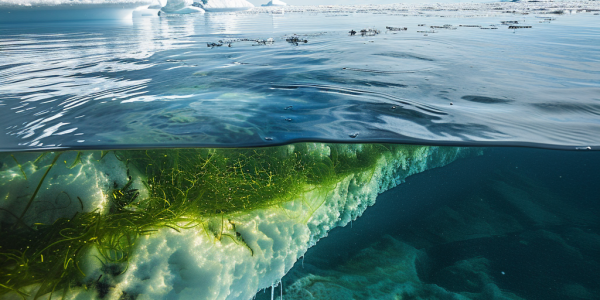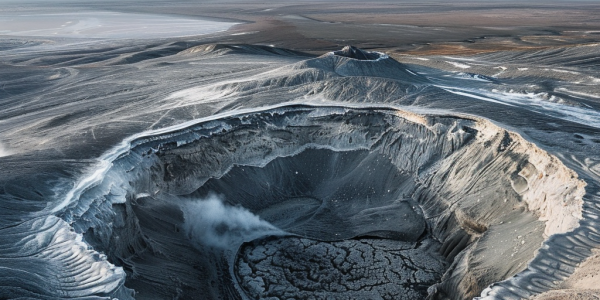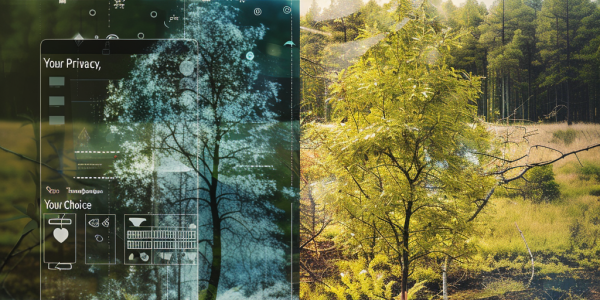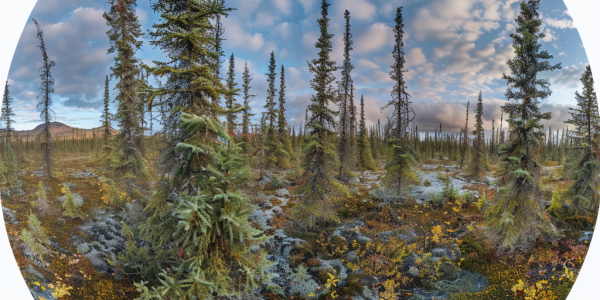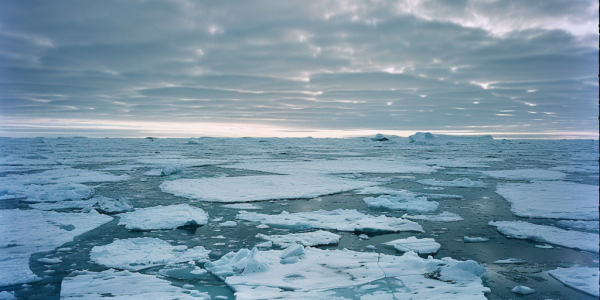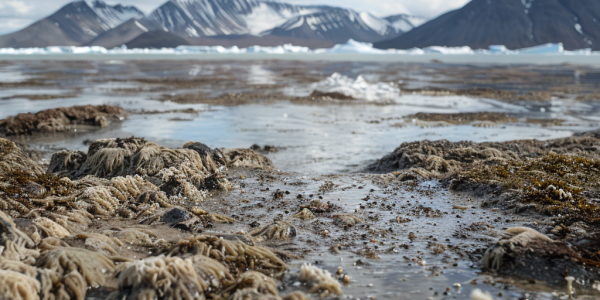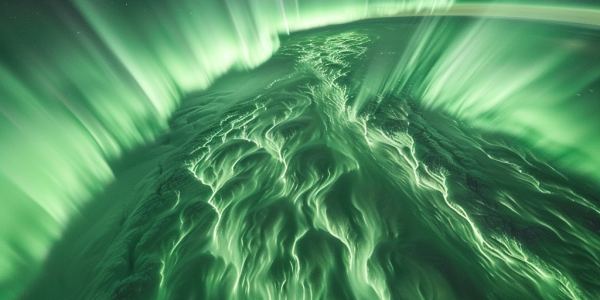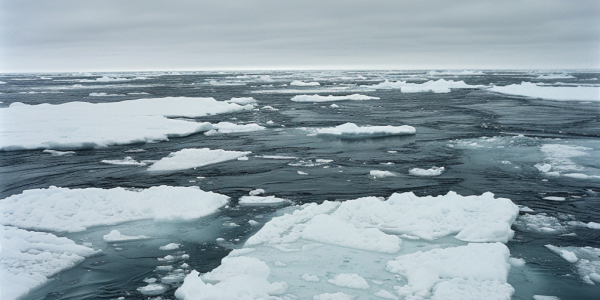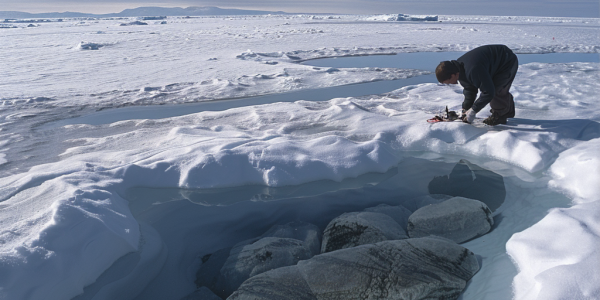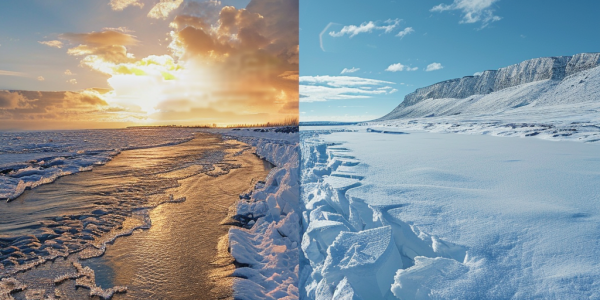Climate Change Threatens Polar Ecosystems: Alarming Decline in Sea Ice Impacts Marine Food Chain
Scientists are sounding the alarm over rapid changes in polar regions, particularly the alarming loss of sea ice, which threatens the marine food chain. With record low levels of Antarctic sea ice and predictions of an ice-free Arctic by 2050, the nutritional quality of crucial microalgae is at risk. Dr. Rebecca Duncan’s research highlights the importance of these ecosystems, emphasizing the need for urgent conservation efforts to address the impacts of climate change on polar marine life.
Mysterious Siberian Craters Linked to Climate Change and Methane Release
Mysterious craters in northwestern Siberia have emerged over the past decade, raising questions about their origins and the impact of climate change. Recent research reveals that these explosive formations are influenced by melting permafrost and methane buildup, highlighting the urgent need to understand the relationship between human activity and geological processes in the Arctic.
Reevaluating Tree Planting as a Climate Solution in Northern Regions
In an era where online privacy is paramount, understanding cookie consent and data protection is crucial for users. This article explores the implications of accepting optional cookies and the potential risks associated with data transfer to third parties. Additionally, it discusses the effectiveness of tree planting as a climate change solution, particularly in northern high latitudes, where recent research suggests it may contribute to warming. A comprehensive approach to climate strategies is essential for sustainable solutions.
20-Year Study Reveals Complex Impact of Climate Change on Alaska’s Permafrost Forests
A groundbreaking 20-year study by Osaka Metropolitan University reveals how climate change impacts carbon dynamics in Alaska’s permafrost forests. The research, published in the Proceedings of the National Academy of Sciences, highlights a complex shift from CO₂ sinks to sources and back, emphasizing the adaptability of black spruce trees amid changing environmental conditions. This vital study aims to refine climate models and enhance our understanding of ecosystem responses to global warming.
Evaluation of Arctic Sea Ice Simulations Using cGENIE Model
Recent studies have highlighted the rapid changes in the Arctic region, with warming rates far exceeding the global average. A study published in Scientific Reports evaluates Arctic sea ice simulations using the cGENIE model, showing promise in accurately representing Arctic sea ice dynamics. The findings indicate significant regional variations in Arctic sea ice concentration under high-emission scenarios, emphasizing the urgency of understanding and predicting future changes in the region.
Microscopic Fungi Enhance Soil Carbon Storage in Newly Formed Arctic Landscapes, Study Finds
Recent study by researchers at Queen Mary University of London reveals how microscopic fungi enhance soil carbon storage in newly formed landscapes resulting from the shrinking of Arctic glaciers. The colonization of microorganisms in exposed areas plays a crucial role in soil formation, offering significant carbon stores under specific conditions. Dr. James Bradley’s team’s findings, published in Proceedings of the National Academy of Sciences, shed light on the complex processes involved in post-glacial soil formation in Arctic regions.
Scientists Discover Rare ‘Polar Rain’ Aurora Over Arctic Region
Discover the mesmerizing ‘polar rain’ aurora observed for the first time on Christmas Day 2022 over the Arctic region. Japanese and US-based researchers unveil the unique origins of this rare phenomenon, shedding light on the mysterious green glow spanning 2,485 miles. Learn how data from satellites unraveled the secrets of this unprecedented celestial event, marking a significant milestone in understanding auroral dynamics and space weather.
Arctic Ocean Warming: Implications and Research Findings
The Arctic Ocean is experiencing rapid warming, with temperatures rising four times faster than any other ocean. This phenomenon, known as Arctic amplification, is causing significant changes with global implications. Melting sea ice exposes darker ocean water, leading to further warming and reduced albedo. The warming extends to the permafrost layer, releasing greenhouse gases like methane. Researchers are studying these changes to understand their impacts, including the paths of Atlantic water entering the Arctic Ocean’s Canada Basin.
Renowned Virus Researcher Warns of Potential Pandemic Threat from Ancient Viruses in Arctic Permafrost
Renowned virus researcher Jean-Michel Claverie warns of the potential threat of future pandemics originating from ancient viruses emerging from Arctic permafrost. His groundbreaking discovery of ‘zombie viruses’ dating back up to 48,500 years highlights the urgent need for proactive research and risk mitigation strategies to address this public health concern.
Study Reveals February 2024 as Warmest Globally Despite Record Cold in Some Regions
A recent study by the Gwangju Institute of Science and Technology reveals that February 2024 was the warmest February globally on record, despite record-breaking cold temperatures in various regions. This paradoxical climate phenomenon emphasizes the need for enhanced climate strategies to address the intensifying impacts of extreme weather events.

